Euronews Culture's Film of the Week: 'Civil War' - Alex Garland's jaw-droppingly tense thriller
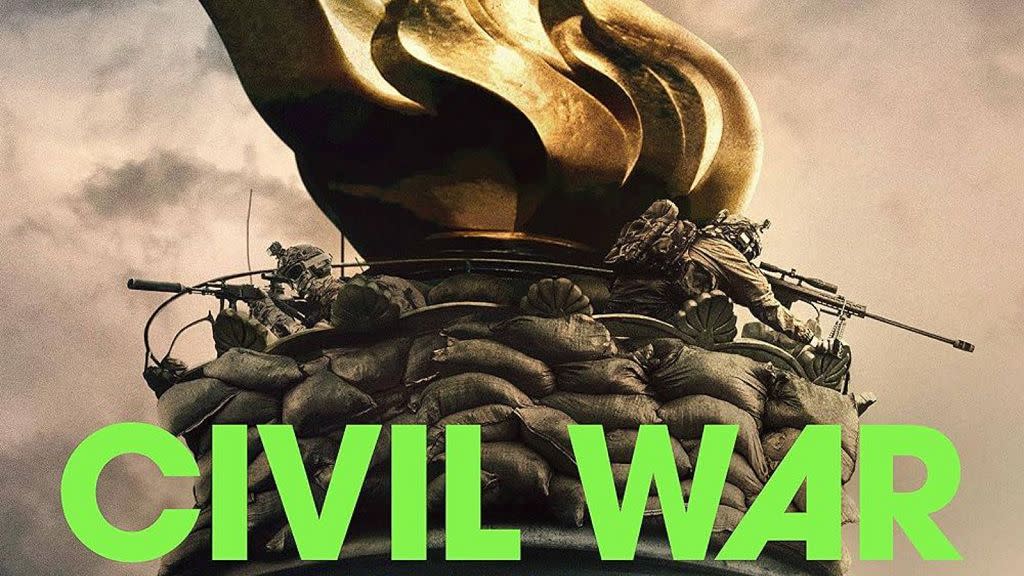
In the near future, the United States isn’t so united anymore.
At the heart of the country’s second civil war is a president (Nick Offerman, in non-distractingly Trumpian mode), who refuses to leave the White House.
The Fascist-in-Chief has given himself a third term, disbanded the FBI, and used air strikes against American citizens. All for ego.
Sound eerily probable?
Writer-director Alex Garland (Sunshine, Ex Machina, Annihilation) is counting on it. To a point though, as he keeps things deliberately vague.
What we know is carefully drip-fed to us. California and Texas have joined forces to become the Western Front. The Florida Alliance has been vanquished. The country is now a smoke-filled, gun-toting, suicide bombing, refugee camp erecting, sniper-happy, mass-grave filled shitmare.
How we got here is none of our concern, much like it is none of veteran war photographer Lee (Kirsten Dunst) and her colleague Joel (Wagner Moura)’s business. As Lee says, it’s not their job to ask questions: “We take pictures so others can ask these questions.”
These two journalists are aiming to make the treacherous drive from New York to Washington D.C. for the mother of all exclusives: interviewing the autocrat holed up in the White House, who hasn’t given a single one in 14 months.
Tagging along for the ride are Jessie (Cailee Spaeny), an aspiring photographer who is a fan of Lee’s, and Sammy (Stephen McKinley Henderson), an aging reporter who wants to go to the front lines in Charlottesville. Not that this pleases Lee much. In her mind, Jessie’s too young, Sammy’s too old, and the perilous road trip will become even more so with straddlers.
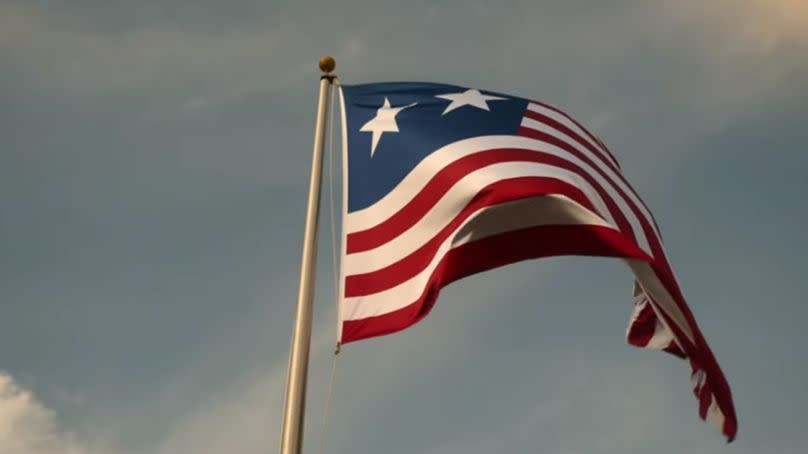
Civil War has become the most controversial film of 2024 so far. Released months before what already promises to be the most contentious presidential election in history, Garland has delivered a visceral film which taps into modern American anxieties - but which smartly wrongfoots any audience member eager to be fed commentary on the current state of US politics. Instead, this “What if?” thriller answers that very question with a level of lucidity and brutality that is both compelling and slyly challenging.
Garland's choices won’t be to everyone’s liking, as many will find the broadness of Civil War frustrating and even maddeningly apolitical. And that’s the point. The audience is plunged in medias res, and the reasons behind the conflict are immaterial compared to the conflict itself.
By straying away from the typical (and dull) political binaries inherent to the US – something highlighted by the fact that two states as politically opposed as California and Texas have joined forces – Garland sidesteps obvious beats to offer something primal and better focus on the unflinching reality of a moment.
This isn’t cowardly fence-sitting or exasperatingly centrist, as many will throw at the director; rather, he has employed a neat trick to dismiss easy answers and show that the West’s view of war (something so often viewed as abstract and happening elsewhere) so frequently dismisses the real human cost of violence.
By focusing on how conflict makes monsters of us all rather than the blue / red divisions, Civil War becomes a more impactful anti-war film that audaciously sacrifices context to better mirror international conflicts – only this time it’s set in America and not in a country most US citizens couldn’t place on a map with a gun to their heads.
Speaking of which, if a gun is pressed on your noggin, does it really matter which political affiliation your soon-to-be killer adheres to?
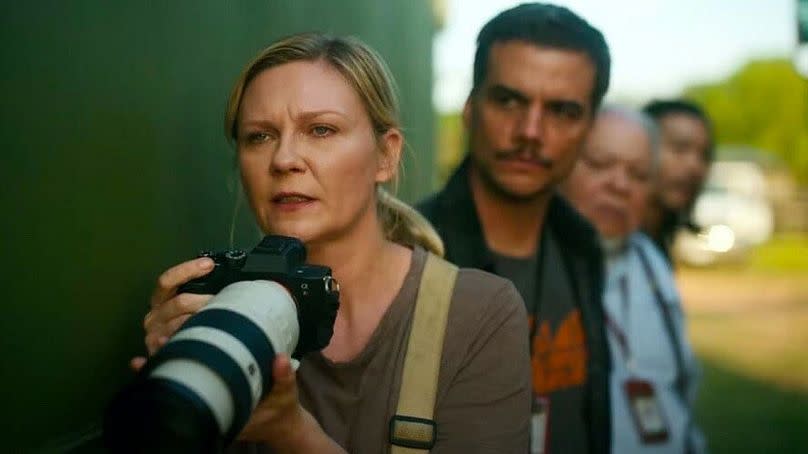
Thrillingly, Civil War uses studiously non-ideological reporters as our proxies, and by doing so, offers food for thought on the difficulty intrinsic to war journalism – namely the importance of being a witness and the ethical dilemmas of impartiality. With cinematic touchstones like All The President’s Men, The Insider or Zodiac, Garland manages to veer towards a portrait of non-heroic and not-always-male reporters that are still pursuing the truth and doing their jobs.
Again, the director avoids ticking all the boxes you might expect. No melodrama, no self-righteousness, no Hollywood preachiness – and the film is stronger for it.
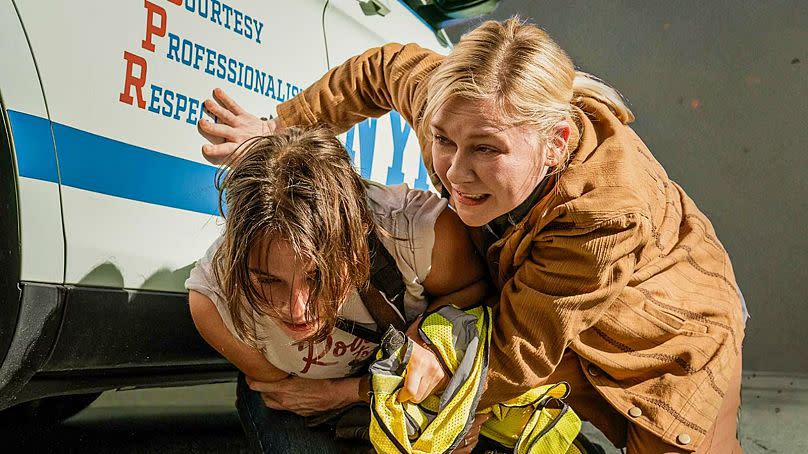
Doubling back to the in medias res, we also get little to go on when it comes to character backstory. This could have been a hindrance, but it works. We get what we need, especially from Dunst and Spaeny’s characters, who play off one another well and effectively embody the hardened pro silently dealing with PTSD and the over-eager cub dynamic. Both actors skillfully express their evolving roles in the final act to great effect.
And what a final act it is. The last 20 minutes will have your jaw wrestling with the floor and your knuckles whiter than the terrifying “What kind of American are you?”-asking redneck (a cameoing Jesse Plemons).
The whole of Civil War is masterfully executed and visually stunning, with Garland and his cinematographer Rob Hardy managing to combine tension-fueled realism with haunting beauty. However, the brilliantly staged and muscular last act is where it crescendoes. It's edge of your seat stuff, that further emphasises that this is a film you need to experience in a cinema. The sound design in particular is heart-racingly powerful, with each gunshot resonating and echoing through your bones, contrasting with punishingly intense silence heard either in the aftermath of a detonation, or during precious segments of respite.
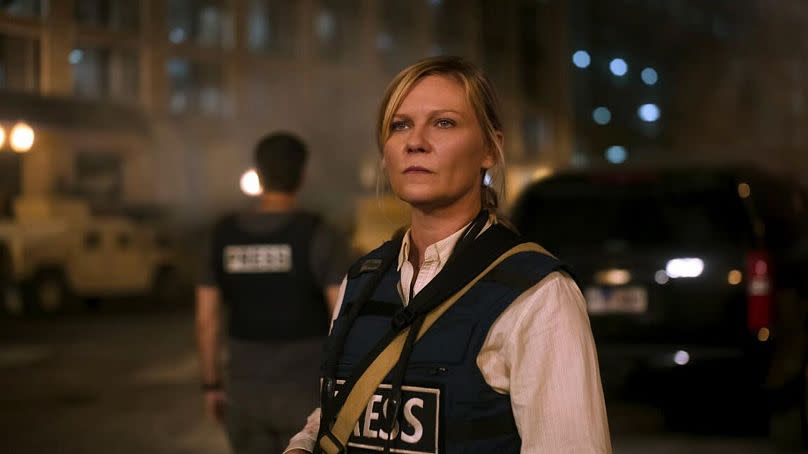
Civil War will polarise, but will also achieve unanimity in relocating hearts to mouths.
It’s a disquieting watch that strives for realism, achieves it, and demands a theatrical experience. If only just to walk out, nerves shredded, accompanied by a fellow moviegoer, to ask the question: “What if this did come to pass in our own backyards?”
As Lee says when discussing sending back photos in her early days in the field: "I'd think 'Don't do this. Yet here we are..."
Let's hope this cautionary tale, full of sound and fury, signifying more than you may think, isn't as timely as its release.
Civil War is in cinemas now.


